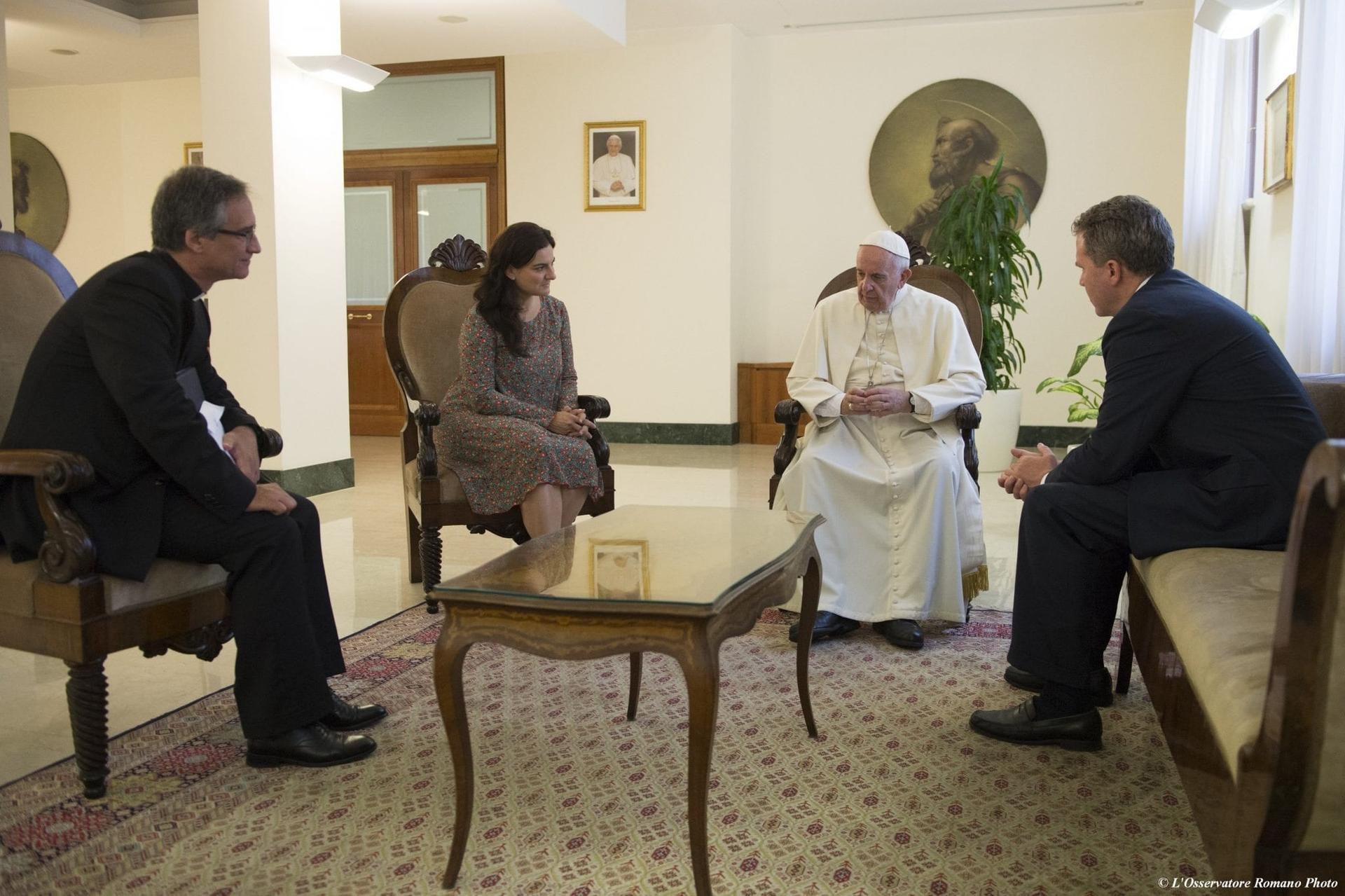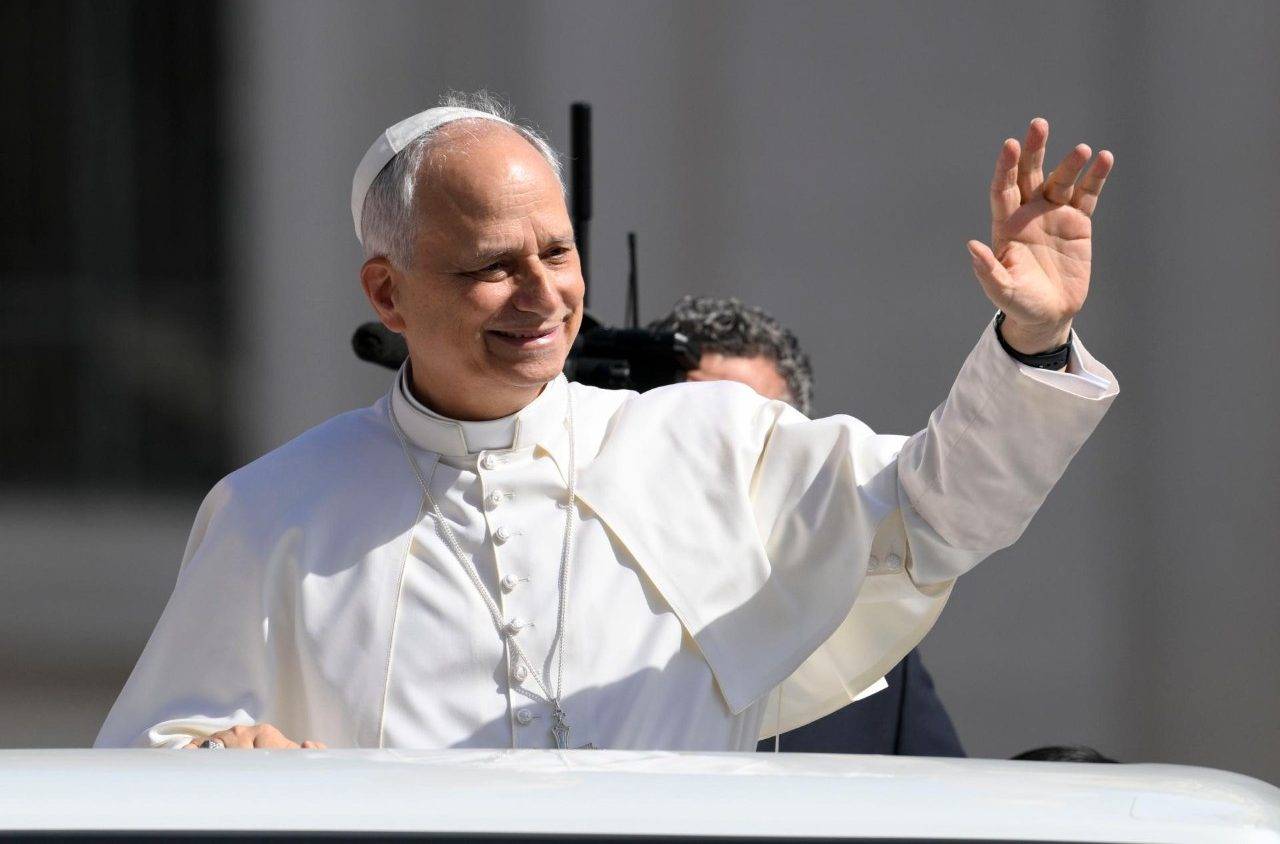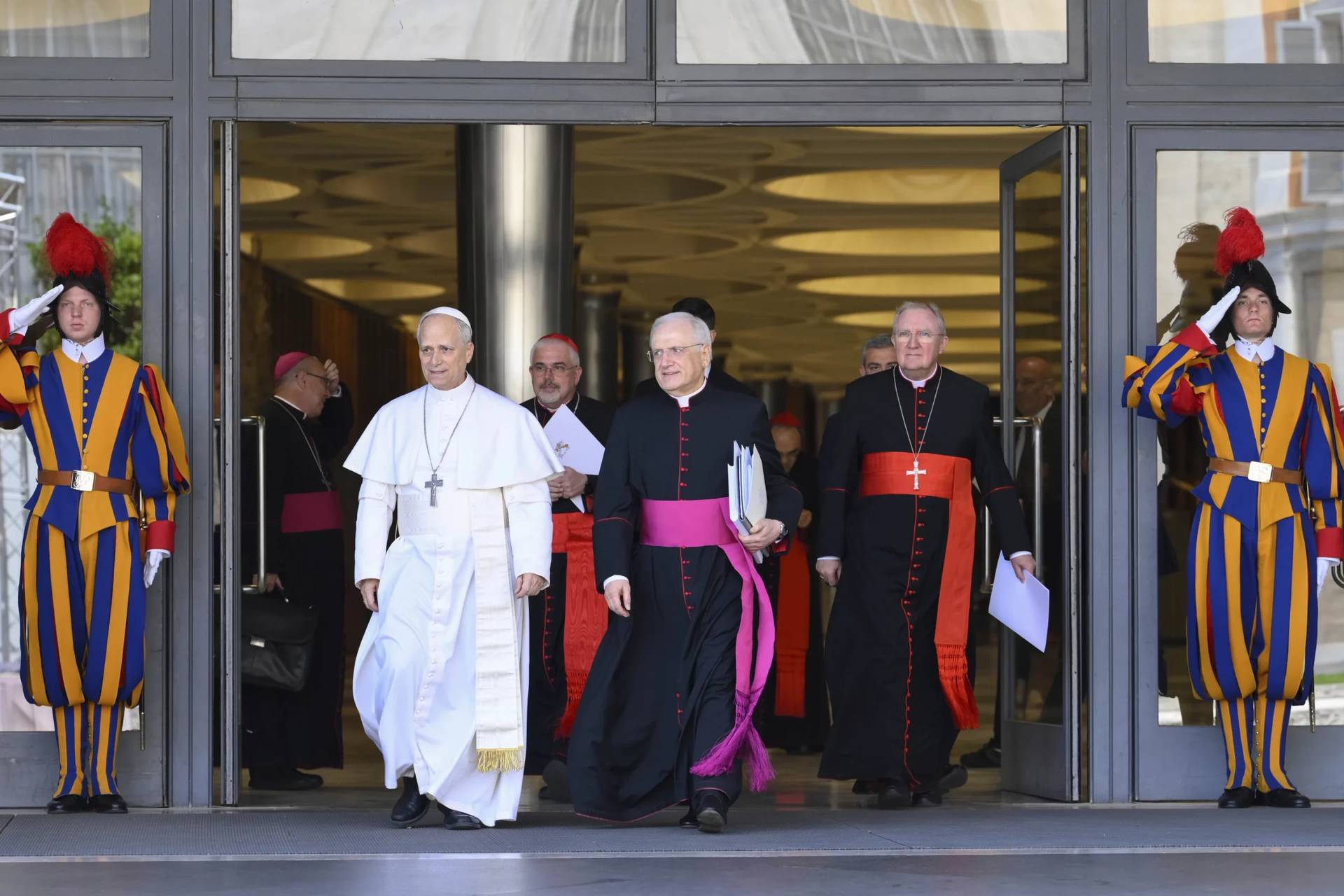Although you won’t find it on any official calendar, August 1 marks an important anniversary for the Vatican’s engagement with the outside world, especially the press. As of today, it’s been exactly one year since an American, Greg Burke, and a Spaniard, Paloma García Ovejero, took over as the principal spokespersons for the Holy See.
By American standards, they probably ought to be doing victory laps, since they’ve already had a longer tenure than the seven months Sean Spicer lasted as spokesman for President Donald Trump, and, needless to say, an eternity compared to the mere 10 days logged by Anthony Scaramucci.
Both Burke and García Ovejero were innovative choices. It’s the first time the Vatican’s two most important positions in media relations are held by non-Italians, and the first time both positions are held by laity. In addition, García Ovejero is now one of the Vatican’s most visible women, and the first woman ever to act as spokesperson for the pope.
What’s the balance sheet on this unique team, one year in?
Honestly, I’m probably the wrong person to ask. Burke, a longtime veteran of Time magazine and Fox News, is an old friend. García Ovejero is someone I knew and admired when she was working for Spanish radio covering the Vatican, not to mention she’s a personal friend of Crux’s Inés San Martín, and that’s more than enough to make her a good egg in my book.
That said, I’ll do my best to set aside personal bias and try to explain why I believe two things – one, that Burke and García Ovejero have changed the Vatican’s relationship with the press for the better, and two, they’re nonetheless operating below their real potential.
Let’s begin with the positive side of the ledger.
When I began covering the Vatican 20 years ago, the Press Office was basically akin to the Death Star for most reporters. It was filled with people you feared, and was seen as more of an impediment to reporting than a resource. We kept showing up because it’s where the legendary Joaquin Navarro-Valls hung his hat, but in general, no one really saw the Press Office as friendly territory.
RELATED: Joaquin Navarro-Valls: Take him for all in all, I will not look upon his like again
All that began to change under Father Federico Lombardi during the Benedict XVI years, and has reached full flower under Burke and García Ovejero. They’re both former journalists with long experience covering the Vatican, so they know what it’s like. They’re friendly, sympathetic, and accessible, exactly what you’d want press officers to be.
In a thousand small ways, they’ve converted the Press Office into something akin to a family.
Here’s a simple but telling example. Every year at Christmas time, Vatican bigwigs tend to get a lot of unsolicited presents from people they don’t really know, who generally are just looking to curry favor. Often, those gifts go out with the next day’s trash. Burke and García Ovejero, however, decided to distribute them among the rest of the Press Office staff, who, being lower-level Vatican personnel, are typically under-paid and under-appreciated.
In other words, both possess a sincere human touch, and it shows.
Here’s another asset Burke and García Ovejero can draw on: Being former journalists, they’re able to call reporters out with credibility when their work is unbalanced, misleading, unfair, or has obvious holes. (I’ve been on the receiving end of that treatment from Burke a couple of times, and even if I didn’t necessarily agree 100 percent with his critique, I certainly took it seriously.)
In the old days, the unstated message from the Vatican when a reporter showed up was that nobody was going to do backflips to make you feel welcome. Today, Burke, García Ovejero, and their team project a different impression. The sense is that the Vatican understands the importance of the press, and, within reason, wants to make our jobs easier. García Ovejero in particular is known for her round-the-clock work ethic — I have no idea when she sleeps, but it can’t be that much or that often.
The “us v. them” dynamic of the old days, in other words, has largely dissipated.
(As an ironic consequence, my perception is that the Vatican press corps is less united than it was 20 years ago, more prone to in-fighting and partisan tensions, perhaps because journalists no longer have the same sense of fighting a transcendent common enemy.)
Moreover, Burke and García Ovejero are talented professionals. They know their stuff, they work hard, and they try to be responsive in real time. They have an enormous reservoir of good will, which is an asset in media relations never to be discounted.
Now, for the negative side.
To put it bluntly, neither Burke nor García Ovejero is perceived as a Vatican insider. Reporters call them when they need something fast and on-the-record, but when you genuinely need to know what the pope is thinking, neither is the person you’d consult. Often, they’re as caught off guard by the latest development as anyone else.
In other words, they suffer from the same handicap as any spokesperson without direct access to the boss: They’re often asked to explain things they don’t necessarily understand themselves, and can end up looking out of the loop.
As a related problem, because they’re not seen as true power-brokers, they don’t have a tremendous capacity to force insiders into line. The real problem with Vatican communications over the years has rarely been the formal statements that come from the Press Office, but rather cardinal so-and-so giving an interview to an Italian paper in which he veers off-script, breaks from the pack, or generally upsets the apple cart.
Neither Burke nor García Ovejero is the kind of figure who could call that cardinal up and read him the riot act, in full confidence that the pope will have their backs.
Whose fault is that?
Well, to some extent it’s Burke and García Ovejero, basically for being too nice. They’re inclined to say yes when the Church calls, despite the fact both must know the circumstances aren’t ideal. Professionals of sterner stuff might say, “You want me to do this? Then give me the access and power I need, or find somebody else.”
(I sometimes wish the Vatican would run out of qualified people to do the job until the spokesperson’s role got a major upgrade. Yet, among the mysteries of Catholicism is that there never seems to be any shortage of people willing to do whatever the Church asks, however contrary it may be to their professional and personal instincts.)
One also has to fault Pope Francis to some degree.
Despite the adoring treatment Francis gets from much of the press, there’s no clear sign that media relations is actually a priority for him. If it were, Burke and García Ovejero would have a direct pipeline, they’d meet him regularly for private briefings, and they’d be consulted in advance on major decisions as to what response to expect and how to address it. For sure, Burke and García Ovejero both have the moxie to make the most out of that sort of role.
Francis, however, so far hasn’t made many strong moves in that direction, and so we are where we are.
That place, however, is still substantially better than once upon a time, and for that, Greg Burke and Paloma García Ovejero deserve a “happy anniversary” from anyone who’s ever put fingers to keyboard or microphone to lips to cover the Holy See. Power-brokers or not, they’re friends to the press, and a lot of days that’s more than enough.














